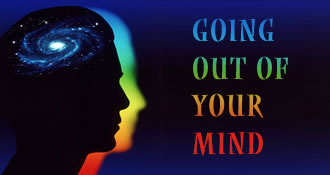
You work too hard. Your mind needs a rest. I don't have to meet you to know this. I simply have to look at the statistics. They are brutal. For an "average American" who leaves college at 22 and lives to be 70, the 48-year adult lifespan can be broken down into a few key activities. Work will consume a total of 16 years - that's 16 years nonstop, without any breaks for eating, sleeping or vacationing.
Work is the single greatest carnivore among the predators that eat your life away. Whether it's a life labored away in meetings and sales presentations, or consumed by study at a desk, talked out on the telephone or spent in the sheer physical exertion of caring for other people, you spend more time working than doing anything else.
Sleep is the next greatest factor - sleep, and time spent lying awake in bed, wishing you could either get to sleep or summon the energy to get up. The average is 15 years - a shade under eight hours a day.
For many people whose work is particularly demanding those 15 years will be whittled down by early starts and thousands of hours lost burning the midnight oil.
The next biggest drain on your time is a shocker - it's television. You could spend up to eight years watching soaps and talkshows, movies and news bulletins. TV occupies more than twice as much time as eating - if you don't eat while staring at a mind-numbing, flickering TV or computer screen.
Commuting is another heavy burden: The average American spends two entire years travelling between home and work. Chances are that more work is done during that time, if public transport is used . . . and more mindless entertainment is consumed, in the form of banal radio chat and mass-produced music, when the commuting is done by car.
What about the other stuff? The good stuff? Games with children and grandchildren, outings and theater trips, an afternoon ball game with good friends, love-making? The stark fact is that less than four years are devoted to these essential luxuries. That's one-twelfth of your adult life, a maximum of five minutes in every hour. Tragically, most of that time will be postponed to the period called retirement, when many people no longer enjoy the health needed to live life to the fullest.
My purpose in spelling this out is not to depress you. I want to inspire you. I want to wake you up. I want you to reclaim your life. Remember, don't take immediate action. Quite the opposite - I am ordering you to take an immediate rest.
Give your mind a few moments of blissful relaxation. Block the constant barrage of over-stimulation and stem the rivers of useless information, by simply pointing your mind in another direction. Look at the sky and study the clouds. Let your mind float up among them. If you can't see the sky right now, even better... imagine the clouds. Relax.
This cannot be done with the television blaring. Ask yourself if you would like to reclaim some of those eight wasted years, before they're gone forever. Then press the 'off' switch.
Is that so hard? Are you really missing anything? Will your life be less rich or varied if you stop subjecting yourself to the countless hours of television and media propaganda supported by intervals of poorly written, badly-acted shows?
Reverse the question - do you expect that on your deathbed, you'll say, "I wish I'd spent more time watching TV?"
Treat these reclaimed hours as mind time. Enjoy the sensation of freedom from artificial stimulation. You'll taste the difference instantly. As though a can of hyped-up, sugared-up, caffeine-spiked, additive-addled cola suddenly becomes a glass of water, chilled and cleansing.
Rest your mind. Do nothing with it. When thoughts drift in, let them drift out again. Think of things you do without thinking - the rhythm of your breathing, the scent of air. Listen to your heartbeat.
I am not telling you to pick up the Torah and meditate on a verse, or start praying. The desire for these wonderful mental pleasures will develop naturally, as your mind learns to rest. For now, think of nothing in particular. Or, nothing at all.
The rush of outside stimulation will start up soon enough. Don't worry about how many moments of mind time you can cram in before the rest of the world intrudes. Let it come when it will. Until then, rest.
The vagrant poet WH Davies, whose life's work was to gaze into the sky and watch the clouds, once asked, "What is this life if, full of care, we have no time to stand and stare?"
Uri Geller is an internationally acclaimed paranormalist and the author of several books, including Mind Medicine and Uri Geller's Mind Power Kit.

